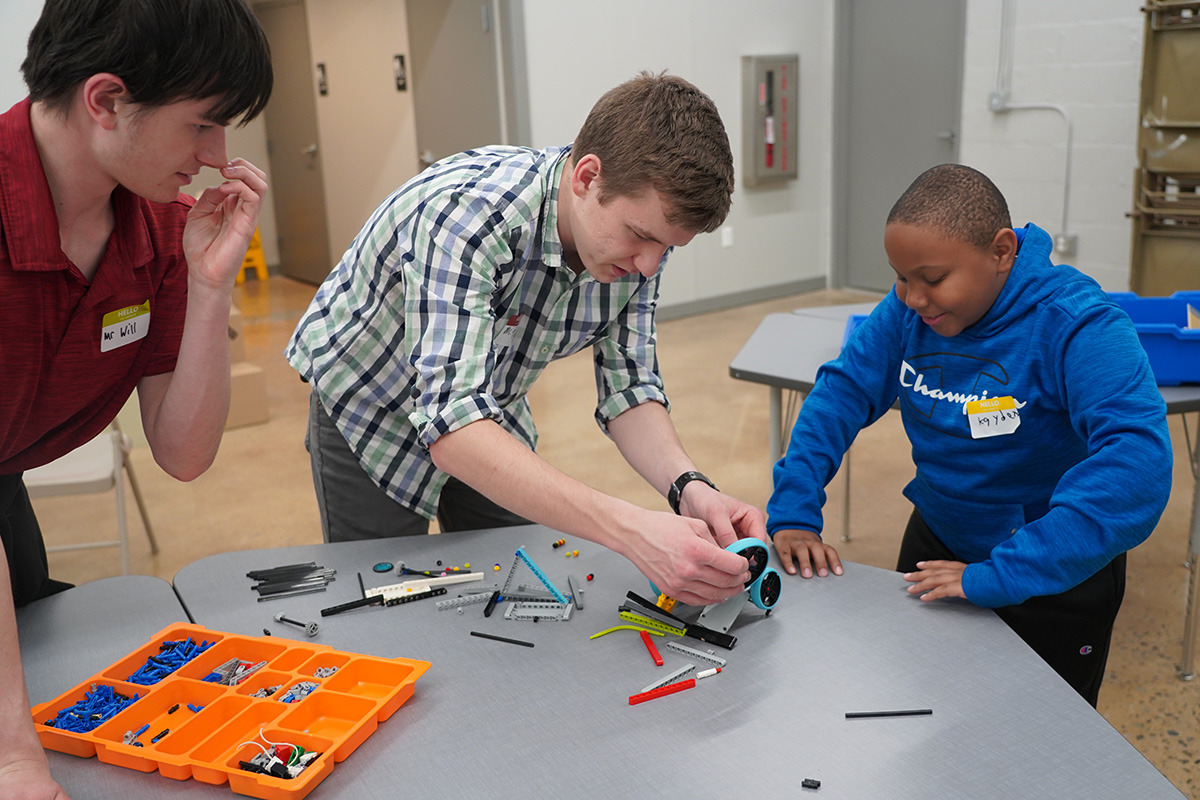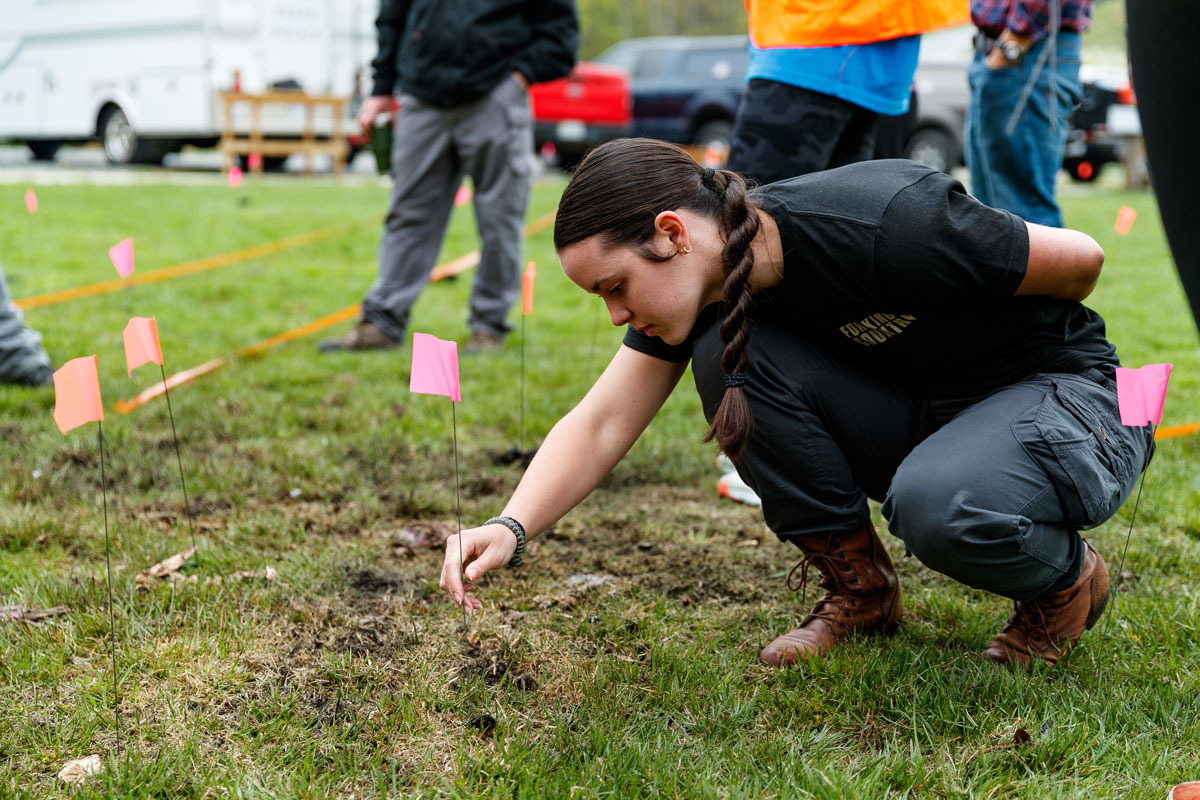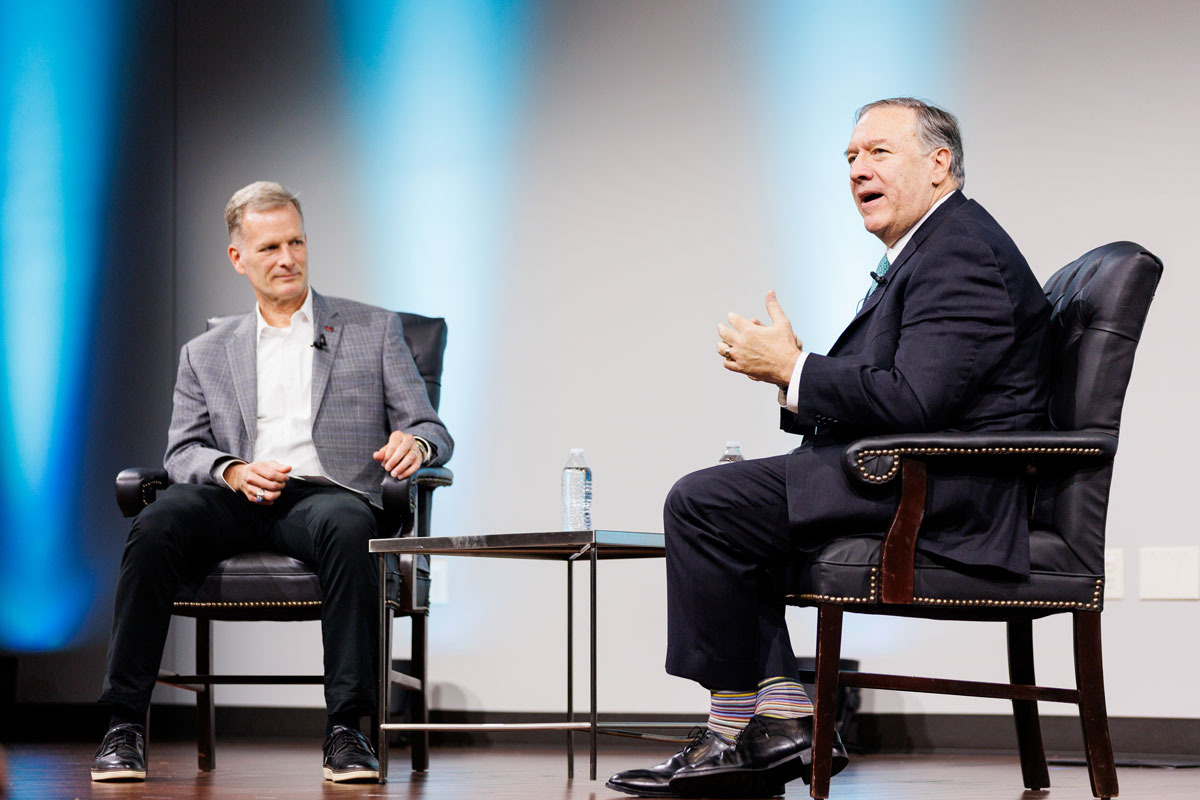Search News Archives
Filter News Articles
Additional Navigation
Sports journalism, church media production among new concentrations under Digital Media and Journalism degree
August 14, 2020 : By Ryan Klinker - Office of Communications & Public Engagement
Adapting to the latest industry practices and trends, Liberty University’s School of Communication & the Arts (SCA) has revised its curriculum in the Department of Digital Media and Journalism (DMAJ) and unveiled nine new degree concentrations that include sports journalism, church media production, and music recording, among others for the fall.

The development of the new concentrations has been roughly a two-year process, according to department chair John Rost and SCA Dean Scott Hayes, using feedback from students, professional partners, and other schools to develop programs that would best serve the students.
“We’re looking at the industries, we’re looking at the partnerships that we already have, we’re looking at the benchmark schools, and we are thinking ahead as these jobs are changing,” Hayes said. “Looking forward, we are preparing people for 10 years out, and that’s exactly what you want with a college degree.”
All of the degrees under DMAJ will now be a Bachelor of Science in Digital Media & Journalism.
Particularly in the area of journalism, DMAJ faculty found that students were in need of more digital media experience that is likely to be expected of them in their careers, including skills like photography and video production and editing. The new options are sports journalism, a field with large student interest and industry popularity; entertainment journalism, which will be offered in association with the Family & Consumer Sciences (FACS) department; and a more generalized digital journalism concentration.
“We’ve got an enormous amount of athletic interest here at Liberty. Many of the people who were going into (our programs) really wanted to be on the sideline and doing the athletic content, so now we are going to be more deliberate about genre in our track,” Rost said. “There’s going to be a huge amount of sports production going forward in a more formal sense as far as students are considered.”
 The audio subset of the new concentrations will be live production, music recording(with a partnership with the School of Music), and post production. Rost explained that the department’s previous audio-oriented degree was more broadly focused, and these three individual concentrations will allow students to more specifically study in their chosen field.
The audio subset of the new concentrations will be live production, music recording(with a partnership with the School of Music), and post production. Rost explained that the department’s previous audio-oriented degree was more broadly focused, and these three individual concentrations will allow students to more specifically study in their chosen field.
Students interested in pursuing the video side of media will now be able to choose from video editing, video production, and church media production, the last of which will be partnering with the Christian Leadership and Church Ministries department of the John W. Rawlings School of Divinity.
“A lot of our students are ministry-minded, so we took what was a broader digital media video track and focused it,” Rost said. “Church media offers a big employment opportunity for recent college graduates and it scales all the way up — a lot of large churches have a dozen people on staff that are production focused.”
DMAJ has also added five new courses to its curriculum and built a practicum class, DIGI 487, which will expand students’ options to gain hands-on experience. Opportunities include working for the Liberty Champion, Liberty’s sports broadcasting staff, and a possible DMAJ television news show in the future.
“We felt that we could get things up and running with these nine concentrations for the fall and then add more concentrations in the future. As long as it makes sense for students and the market is viable, we will continue to offer innovative new options,” Rost said.
Rost and Hayes said the new concentrations were ultimately designed to prepare students for success following graduation.
“We’ve had statistics that say that more than 90 percent of our students are already getting jobs in the industry within six months, often times lining up jobs before graduation,” Rost said. “We’re teaching with industry-standard equipment and workflows, and we also have a robust internship program. These attributes help students land good employment opportunities.”
“Our undergraduate degrees are pre-professional and are designed specifically to launch you into the workplace,” Hayes added.


